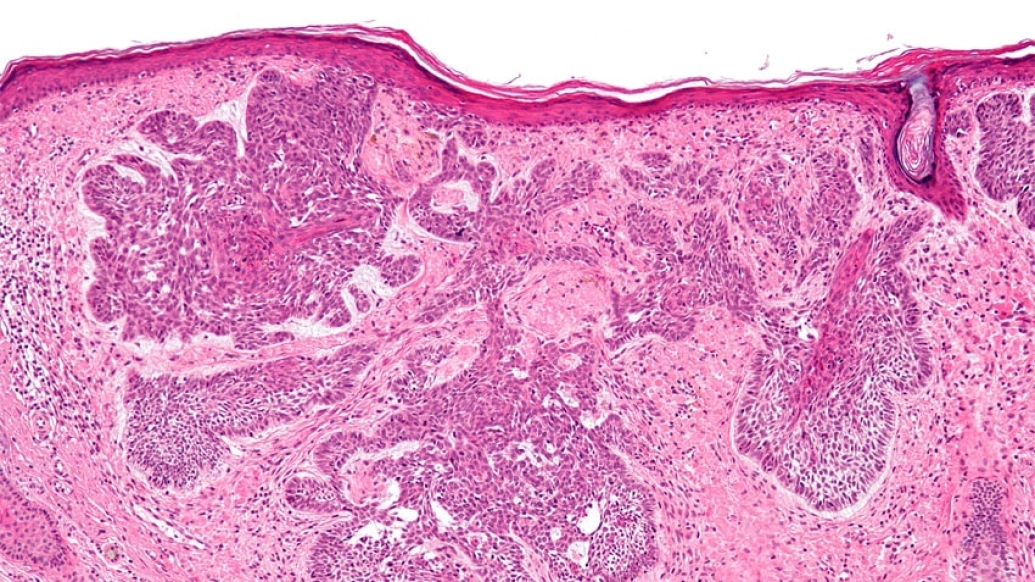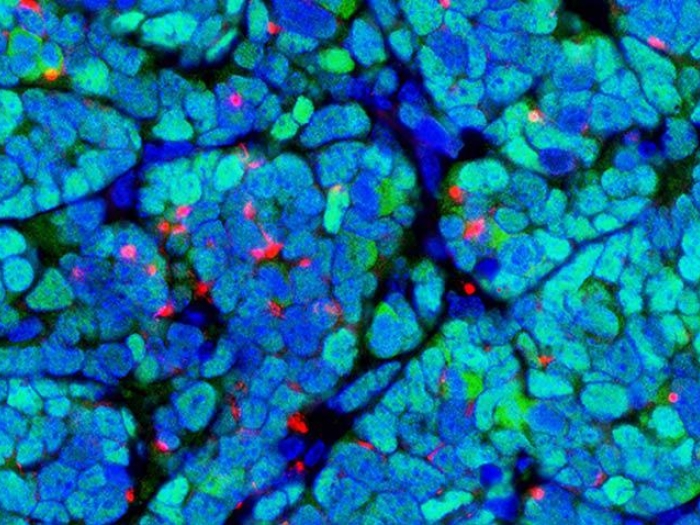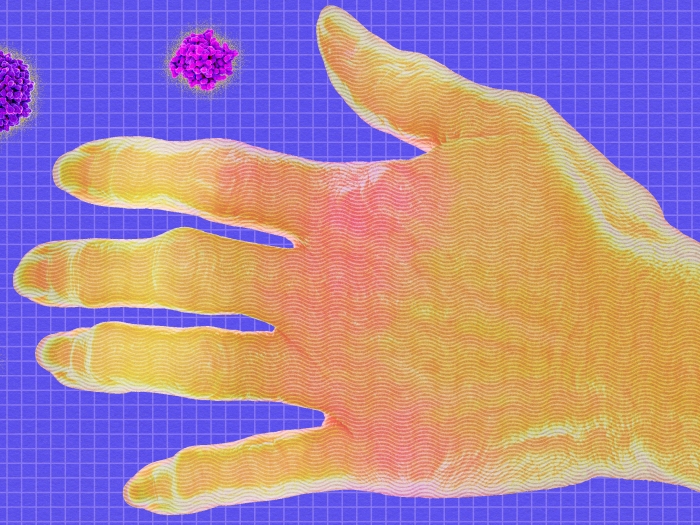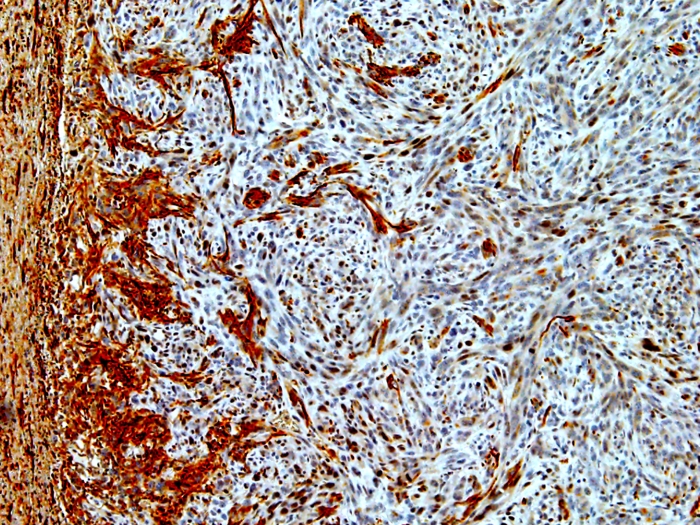A biomarker associated with basal cell carcinoma may help signal which tumors will be more aggressive, a new U-M study finds.
8:00 AM
Author |

Most basal cell skin cancers are easily removed — those on the arm, leg or back. But when the cancer is on the eyelid or when it starts to invade surrounding tissue, it's no longer straightforward.
A team of researchers who specialize in treating cancers of the eye wanted to identify a marker that would indicate aggressive basal cell skin cancer, and perhaps also provide a potential target for treatment.
"Basal cell carcinoma around the eye is very common. The eyelids seem to be a magnet for basal cell," says Alon Kahana, M.D., Ph.D., associate professor of ophthalmology and visual sciences at the University of Michigan Kellogg Eye Center.
"When a patient ignores it and doesn't get it checked out, it can become bigger and invade deeper, making it much more difficult to treat. To do surgery with clear margins you may damage the muscles that control the eye or the bones of the eye socket, or you might even need to remove the eye. It can be really devastating," he adds.
Even if patients are treated promptly, if the eyelid tumor is incompletely excised, it can return years later in a much more aggressive form. In addition, though rare, basal cells in any part of the body have the potential to become aggressive and spread throughout the body.
Inhibiting tumor growth
Recent research has revealed that the hedgehog signaling pathway, which is essential for tissue development and growth, is critical in all forms of basal cell carcinoma.
A clinical trial open at U-M is looking at whether one of two drugs intended to block hedgehog signaling can be an effective way of preserving eyesight in cases of advanced basal cell cancer near the eye. Trials of these drugs in basal cells not limited to the eye found that up to a third of patients had serious side effects.
With strong early results from that study, the researchers wanted to find a molecular marker to identify basal cell tumors that are more likely to be aggressive, in the eye or elsewhere. They also wanted to identify markers of tumors that might be more likely to benefit from chemotherapy with hedgehog inhibitors. They started with the protein EZH2, which is known to play a key role in several aggressive cancers.
They analyzed tissue samples from 60 patients with basal cell carcinoma — 30 with a less histologically aggressive type and 30 with an aggressive type of the disease. Using molecular techniques, they tested for expression of EZH2 as well as Ki67, a marker of cell division.
"We found higher levels of both EZH2 and Ki67 in more aggressive tumors. This is the first fundamental step to show that EZH2 is abundant in histologically aggressive forms of these cancers," says Rajesh Rao, M.D., assistant professor of ophthalmology and visual sciences and of pathology. The study is published in JAMA Oncology.
This is the first fundamental step to show that EZH2 is abundant in histologically aggressive forms of these cancers.Rajesh Rao, M.D.
New treatments in development
Several drugs targeting EZH2 in other types of cancer are in the pipeline. The researchers will next begin looking at whether these drugs could expand to basal cell cancers, alone or in combination with hedgehog inhibitors, in order to improve outcomes. In addition, they will look at whether EZH2 or Ki67 can serve as a marker to help identify patients with an increased risk of cancer recurrence or tumors that are more likely to respond to chemotherapy.
Up to 3.5 million Americans are diagnosed with basal cell cancers each year. Despite the fact that basal cell carcinoma is the most common type of cancer, relatively little research has focused on it.
"One of our hopes is that this promising new discovery will bring back some attention to this most common of all cancers," Kahana says. "Every one of us knows someone who has had basal cell. Our country is filled with survivors."

Explore a variety of healthcare news & stories by visiting the Health Lab home page for more articles.

Department of Communication at Michigan Medicine
Want top health & research news weekly? Sign up for Health Lab’s newsletters today!





